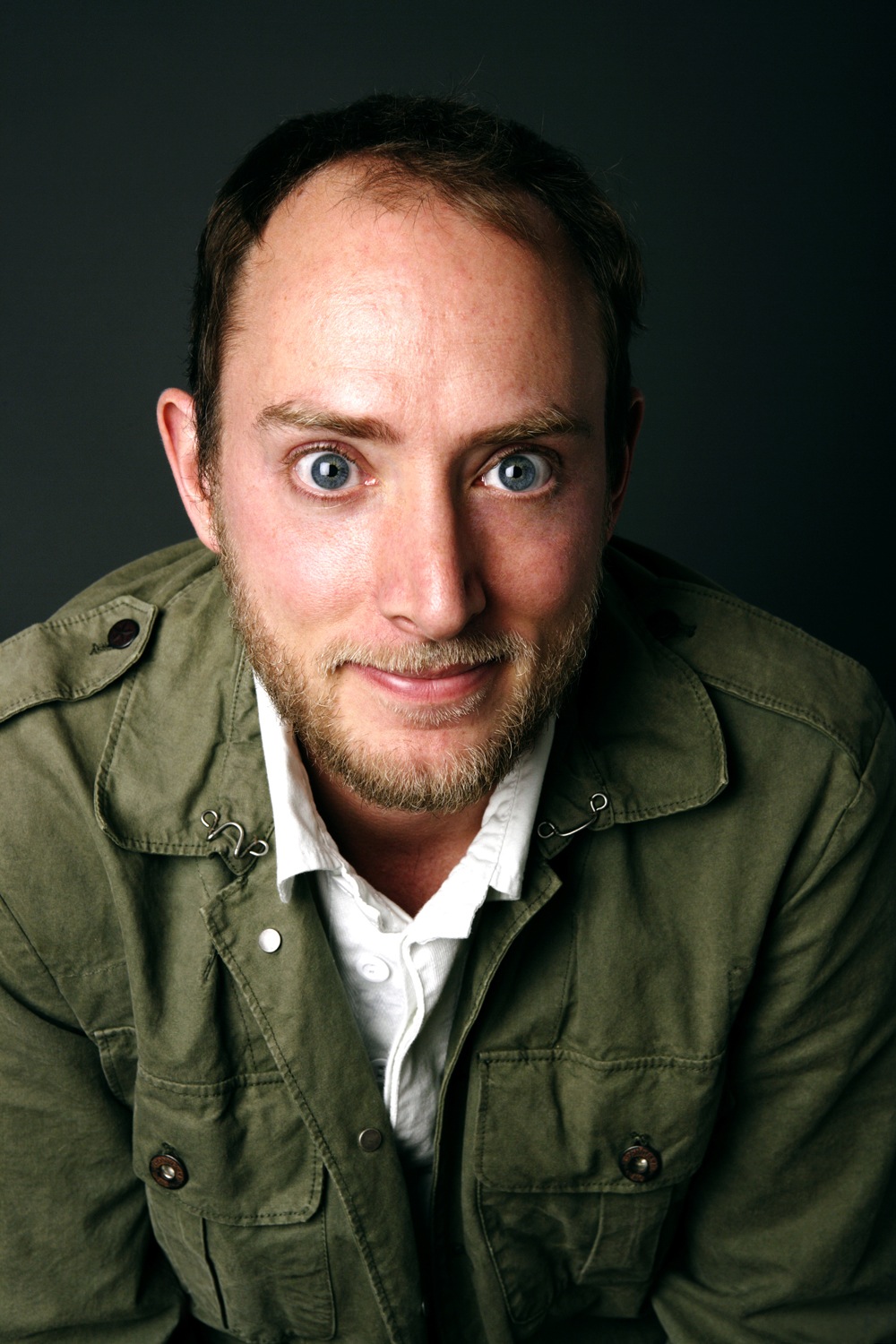Matt Gross: Inside the Outsider

ABOVE: MATT GROSS. PHOTO COURTESY OF TRACY SHAM
Following his stint as the “Frugal Traveler” for The New York Times and in addition to his current journalistic writing, Matt Gross has embarked on yet another journey. His new book, The Turk Who Loved Apples, is a collection of satisfyingly real anecdotes that pepper the larger story of what a life devoted to leaving the Big Apple and experiencing the world on one’s own is actually like. Gross’ writing is informed by travel as muse, allowing him to address life’s major tropes, from feeding oneself to feeding one’s soul, with relatable sensitivity.
RACHEL CARON-DELAS: I think, for a lot of people, one of the reasons why they travel is that it gives you the opportunity to find yourself—something that can only be achieved elsewhere. What is it about leaving home that allows you to discover something about yourself—and is it possible to actually achieve that at home?
MATT GROSS: It’s easier to find yourself, or to discover yourself, or reinvent yourself, if you’re traveling, because you’re in a place where nobody knows you. You don’t have a past. Nobody’s expecting anything from you. So you get to create that existence wholecloth. When you’re at home, you have a sense of control over your life; or, at least, the illusion of control. When you travel, you hand that sense of control over to the universe. There’s a kind of unpredictability and spontaneity that’s possible when you’re traveling that’s kind of hard to achieve at home. I like talking about this. I feel like I should add that when I started traveling—and although a lot of my book seems to be about finding yourself and discovering your identity—I didn’t set out to do that. I had no idea.
CARON-DELAS: You talk about being a “bad tourist.” This was towards the end, when you were trying to approach travel from a different angle. For the Times, you’re on a certain budget, and you have to travel in a very specific way. Do you think that being a “bad tourist” is like being a native, in a sense?
GROSS: You know, for the “good tourists,” they want to see the sights, big things that have made the place famous. And the “bad tourist” maybe just doesn’t care as much about those things and has other priorities, other things they want to do.
CARON-DELAS: I think that really comes across in the book. There isn’t an exact way of traveling; it’s very personal. You can’t do it for somebody else.
GROSS: Well, but that’s the funny thing. When I was doing the “Frugal Traveler,” I was really trying to be the Everyman tourist and trying to do all of the things that I imagine everybody likes to do. That was tough. I wouldn’t say it felt unnatural, but it gave me an appreciation, I think, for both sides of this travel world.
CARON-DELAS: So, when you’ve been away for a really long time, many times you adopt rituals abroad. Is there anything—maybe, lifestyle habits?—that you didn’t have before and you developed while you were away?
GROSS: I got very used to drinking instant coffee! In the tea-drinking parts of Asia I would carry around Nestlé three-in-one packets. You do them long enough that they become rituals for which you have some attachment. They’re not just things that you do, they have an emotional component. I love testing out local, everyday products. I was in Israel two years ago, and now I have stocks and stocks of the shaving cream from Israel called Mem. It’s fantastic! I like checking that stuff out, because that’s something that clues you in to what actual life is like in the place.
CARON-DELAS: Any trips where you really weren’t ready to come home?
GROSS: There’s two points to make here: one is I—especially in the last 10 years or so—learned to think long-term about travel. So, anytime I have to leave a place that I really like, it’s not really leaving it. I mean, I can go back. There’s nowhere that I’ve been and I’ve left thinking: “This is my last chance ever to be here, and I will never be able to get back.” So, there’s not that disappointment. And the other point to make is that I’ve never felt at home anywhere. I’ve felt a bit like an outsider everywhere I’ve ever been. I feel like one in New York. So, it almost feels more natural to me to be abroad where I am absolutely an outsider. There is no question about my not belonging: I don’t speak the language, I don’t have the passport, I don’t look like other people. That’s the most natural I can feel!
CARON-DELAS: So does natural also mean more comfortable?
GROSS: Yeah, I think so. I’m more comfortable being uncomfortable!
CARON-DELAS: You’re obviously the travel expert, but in terms of your personal outlook, is there anything that’s changed dramatically that you can pinpoint? Where you were like: “When I was 22, I never would’ve done it this way.”
GROSS: There’s so much I didn’t know about travel when I was a kid. I didn’t really understand that guidebooks existed.
CARON-DELAS: Really?
GROSS: I mean, my parents always seemed to have friends wherever we were going. Maybe that had something to do with the fact that now, everywhere I go, I try to make friends so I have people that I’ll bump into.
CARON-DELAS: I think, in general, that’s a good approach.
GROSS: And, in my 20s, I just went places. I just never had any block about that. Just go and see what happens! That was the strategy then, and it comes back to that strategy now.
CARON-DELAS: Do you collect recipes? I know that you’re interested in food, as well.
GROSS: Yeah, I do. Not necessarily written-down recipes, but for stories where I’m out in another country, watching how people cook things and taking notes. I’m always doing that, because I don’t want to think of these as strange, exotic experiences that can only happen abroad. I want to take them and make them part of my life at home.
CARON-DELAS: Your writing is very humorous, it has a voice. I was wondering whether you felt like you had the same freedom when you were writing for the “Frugal Traveler” to be as funny?
GROSS: Both the book and “Frugal Traveler” were pretty natural voices for me. In the book, you get to be more literary, more abstract, in terms of structure. You get to write longer sentences. But the overall tone is not hugely different. And there’s something so ridiculous about the job of travel writer, whether you’re writing for the Times or in a book. The writings just have to reflect the insanity of the fact that I’m being paid to travel around and tell you what happened! There’s a great line in one of Haruki Murakami’s novels, I can’t remember which novel this is, but the main character is a writer for popular magazines in Japan and when someone asks him what he does, he says: “I shovel snow.” In earlier forms of capitalism, you have these towns where snow falls and that needs to be shoveled, and so there’s someone whose job it is to shovel snow in the town. In late capitalism, things are more complicated. Magazines exist, celebrities exist, travel as an industry exists, and there needs to be someone who can write about these things in a way that is normal and professional and part of the system. So he shovels cultural snow. That’s what I’ve thought about what I do.
CARON-DELAS: I’m sure it’s also personally fulfilling, though.
GROSS: I like it, and I hope other people appreciate my snow-shoveling.
CARON-DELAS: So you just mentioned Murakami. You also said that you liked reading Zola. I was wondering if that really inspired you?
GROSS: Definitely. It’s something to look up to. I wonder sometimes, but I assume that he was accurate. But I don’t know, he could be one of these writers who is such a masterful writer of words that we must believe him. Even if the Google of 1887 would’ve told us that, actually, that bar was not on that street, it was on the other street.
CARON-DELAS: Well, I guess, in a way, he was the Google of 1887. Going to that idea—of media, in general, the way it’s changed how journalism is being approached now—people can travel on the Internet. It’s so easy to escape, to mimic that feeling of getting lost. Do you find that frustrating? Do you think that it’s an exciting aspect? Or is it bringing, maybe, a more educated traveler, or a more curious traveler onto the scene?
GROSS: I don’t want to say that all of the stuff on the Internet has hurt travel, because it’s amazing how much more there is. From when I started traveling seriously in ’96 to now, it’s insane! At the same time, it means you don’t have to be as curious to travel because so many more of the answers are going to be there for you. Maybe that’s good; it makes travel more democratic. But I think we’ve lost something. I’m sure people were saying that 50 years ago, too. If all else fails, there’s still Mars!
THE TURK WHO LOVED APPLES IS OUT NOW.






